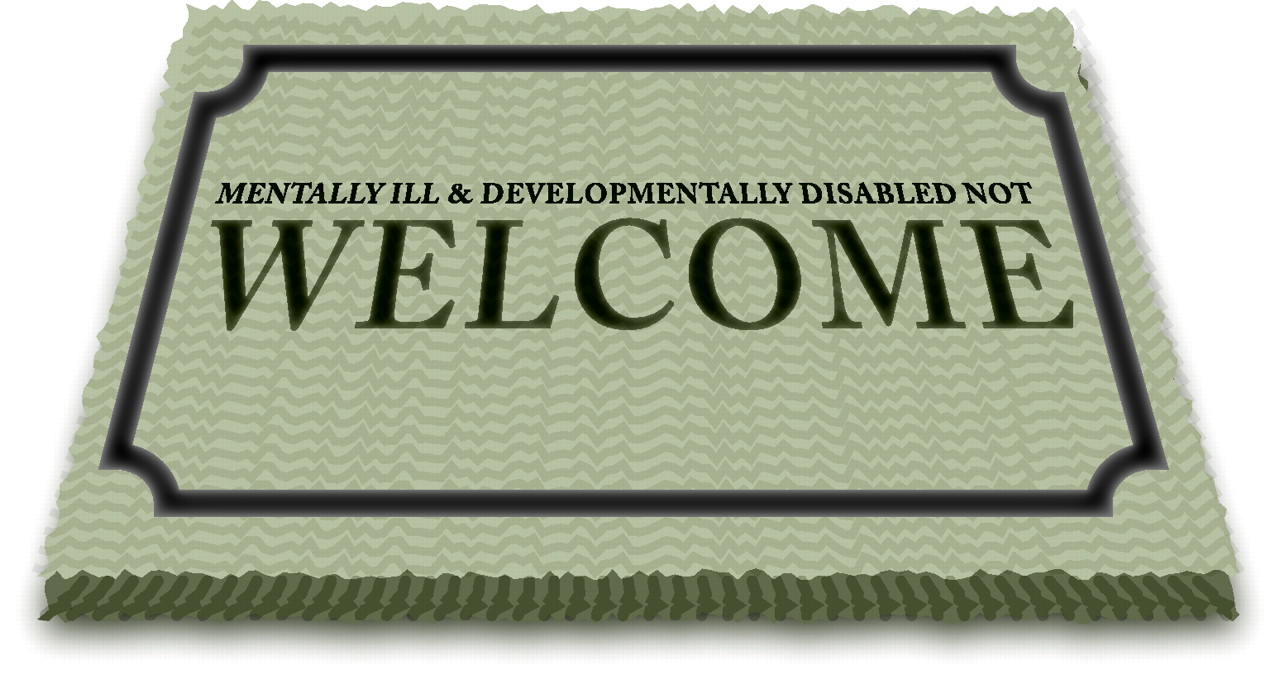Mental health officials report that public sentiment against group homes is on the rise nationwide.
“Opposition is at fever pitch right now,” said Michael Allen, a senior staff attorney for the Bazelon Center for Mental Health Law, a 31-year-old Washington, D.C.-based civil rights law firm that focuses on mental disability issues.
“In part, I think it's because we have a heightened sense of security, particularly after September 11. But other than that, it's hard to know why,” he told Psychiatric News.
Allen's portfolio encompasses housing discrimination and related themes. During his 10-year stint at Bazelon, he has litigated cases focusing on whether people should be released from institutions to rejoin the community. He also has been heavily involved in litigation under the Fair Housing Act and the Americans With Disabilities Act involving local communities that are saying no to group homes. Allen is also the co-director of the Building Better Communities Network.
Allen pointed out that group homes are cost-effective in terms of patients' living arrangements and reduced hospitalization costs. For example, in Tennessee state officials found that among 150 people living in group homes, admissions to psychiatric hospitals dropped from 154 before home relocation to only 10 afterward. State officials say about 177,000 Tennesseans need housing assistance.
For a long time, the housing market did not have any accommodations for people with mental disabilities. Now there is an opportunity to rethink what that housing might look like, said Allen. For much of the last 30 years, group homes have been regarded as the most obvious way for people to make the transition from institutions back to traditional housing. And in the past 10 years, there has been much success in moving people with mental illness into traditional housing. Allen believes it would be ideal to have a more integrated setting for people with mental disabilities so that where they live does not reveal their diagnosis.
One of the biggest obstacles to the acceptance of group homes is a community's fear of mental illness, which is a fear built on itself. Among the main issues opponents raise are such fears as increasing crime rates and decreasing property values.
“That is just plain fear mongering and has been disproved over and over again, but people just keep raising the same old questions,” he said. “And if they can't get any traction with those issues, they go to squishier issues like, `It's going to change the ambience of the neighborhood' or `It's going to change the tax base'—all of which are phony,” he said in a presentation he gave in Detroit recently.
Three decades after Michigan began moving mentally ill people out of state hospitals and into group homes, an estimated 35,000 people live in more than 4,200 state-licensed adult foster care facilities.
Opponents of group homes in Michigan say that recent incidents justify their concerns that group homes are unsafe and a danger to the community. In December, a Troy woman found a convicted murderer in her bathroom while she was showering. The man was a resident of a group home that opened next door. He said he was trying to be neighborly.
The Easter Seals of Oakland County, which administers the home, had the man removed from the facility and later shut it down. But bad publicity fueled momentum against the homes. Now state Rep. John Pappageorge is proposing legislation barring convicted criminals from such facilities.
Other lawmakers insist that more radical changes are needed. State Rep. Jack Brandenburg believes people with mental disabilities should be taken to“ the country” to work.
“Give them some good fresh air. Let them work the land. There is always work to be done in the country,” he said. He is also trying to persuade the state to close a group home, claiming it would attract residents with criminal records or violent backgrounds.
Advocates for mentally ill people say such efforts are extreme and unfair. They claim that a balance can be achieved between public safety and individual rights, although it can be a difficult process.
“It is like you're taking away a person's right to live in the community,” said Sara Thompson of the National Mental Health Association.
A more alarming trend that jeopardizes the future of group homes in Michigan is abuse of people with mental disabilities. Several have been witnessed publicly, and one case was caught on videotape.
Many complaints during the past year have been attributed to the closure in 2003 of Northville Psychiatric State Hospital, once the state's largest institution for people with mental illness and one of the last public mental health facilities in the metropolitan Detroit area (Psychiatric News, February 6). When Northville was built in the 1950s on 453 wooded acres, it became Michigan's premier location for mental health care.
Once most of the seriously mentally ill or physically disabled adults and children in Michigan lived in state hospitals like Northville—out of sight of the rest of the population. Since deinstitutionalization, only a handful of hospitals remain, and thousands of people moved into the community among neighbors who may misunderstand and fear them.
The recent violent assault on a mentally impaired woman caught on tape highlights what state workers and police are calling inexcusable behavior.
A 25-year-old student at Northville's Cooke School, which serves students with various disabilities, was attacked by the manager of the group home where she lives. The tape showed the manager slapping and punching the woman she had just picked up from school for misbehaving.
This incident, coming on the heels of a series of unrelated allegations that a former teacher's aide at the school assaulted three of the school's estimated 125 special education students, caused a public furor. Criminal-assault charges were filed against the aide for mistreating students in the classroom—throwing things at one student, kicking another, and pinching a third.
The Family Independence Agency is responsible for investigating complaints of abuse or neglect in Michigan's 4,200 adult foster care facilities, which include group homes for mentally ill and developmentally disabled individuals. In 2003 the agency fielded more than 1,800 complaints. State officials acknowledge that complaints have increased but note that changes in the tracking system do not allow for accurate comparisons between years.
Nevertheless, there has been a sharp rise in complaints about the unsatisfactory conditions of adult group homes. Complaints statewide increased dramatically from 1,300 in 2002 to 1,898 last year.
Critics contend that inadequate training and low pay are key factors in the growing number of complaints. The staff in group homes generally have no previous experience of caring for mentally ill and developmentally disabled individuals. They receive about two weeks of training and earn fast-food wages.
Mental health officials admit that they are having problems attracting and retaining quality caregivers. Amy Maes, director of legal services for Michigan Protection and Advocacy Service Inc. in Livonia, whose agency has begun an investigation into allegations of abuse in group homes, said the lack of training and poor wages “could be a recipe for lots of problems.” Employees “could be making more money flipping burgers at McDonald's, and then you think of the level of responsibility that person has, it does get tricky,” Maes said.
Officials claim low wages and minimal training are no reasons for group-home workers to resort to abuse.
“No one should have to be educated not to beat another person or not to neglect another person,” said Scott Ourth, spokesperson for the Michigan Protection and Advocacy Service Inc., the agency charged with ensuring the welfare of adults and children served by the state mental health care system. “Nobody should have to be told that's inexcusable.”▪

